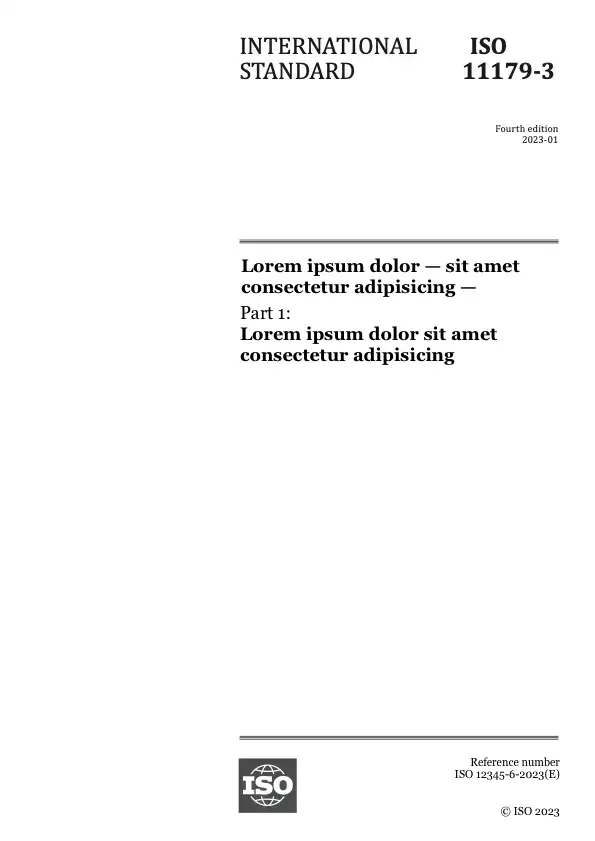Abstract
1.1 Applicability
This document applies to carbon dioxide (CO2) that is injected in enhanced recovery operations for oil and other hydrocarbons (CO2-EOR) for which quantification of CO2 that is safely stored long-term in association with the CO2-EOR project is sought. Recognizing that some CO2-EOR projects use non-anthropogenic CO2 in combination with anthropogenic CO2, the document also shows how allocation ratios could be utilized for optional calculations of the anthropogenic portion of the associated stored CO2 (see Annex B).
1.2 Non-applicabilityThis document does not apply to quantification of CO2 injected into reservoirs where no hydrocarbon production is anticipated or occurring. Storage of CO2 in geologic formations that do not contain hydrocarbons is covered by ISO 27914 even if located above or below hydrocarbon producing reservoirs. If storage of CO2 is conducted in a reservoir from which hydrocarbons were previously produced but will no longer be produced in paying or commercial quantities, or where the intent of CO2 injection is not to enhance hydrocarbon recovery, such storage would also be subject to the requirements of ISO 27914.
1.3 Standard boundary 1.3.1 InclusionsThe conceptual boundary of this document for CO2 stored in association with CO2-EOR includes:
a) safe, long-term containment of CO2 within the EOR complex;
b) CO2 leakage from the EOR complex through leakage pathways; and
c) on-site CO2-EOR project loss of CO2 from wells, equipment or other facilities.
1.3.2 ExclusionsThis document does not include the following:
a) lifecycle emissions, including but not limited to CO2 emissions from capture or transportation of CO2, on-site emissions from combustion or power generation, and CO2 emissions resulting from the combustion of produced hydrocarbons;
b) storage of CO2 above ground;
c) buffer and seasonal storage of CO2 below ground (similar to natural gas storage);
d) any technique or product that does not involve injection of CO2 into the subsurface; and
e) emissions of any GHGs other than CO2.
NOTE Some authorities might require other GHG components of the CO2 stream to be quantified.
Read sample
General information
-
Status: PublishedPublication date: 2019-01Stage: International Standard to be revised [90.92]
-
Edition: 1Number of pages: 55
-
Technical Committee :ISO/TC 265ICS :13.020.40
- RSS updates
Life cycle
-
Now
-
Will be replaced by
Under developmentISO/AWI 27916
Got a question?
Check out our FAQs
Opening hours:
Monday to Friday - 09:00-12:00, 14:00-17:00 (UTC+1)
